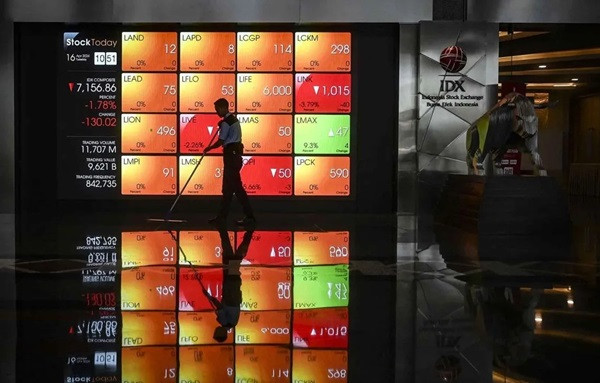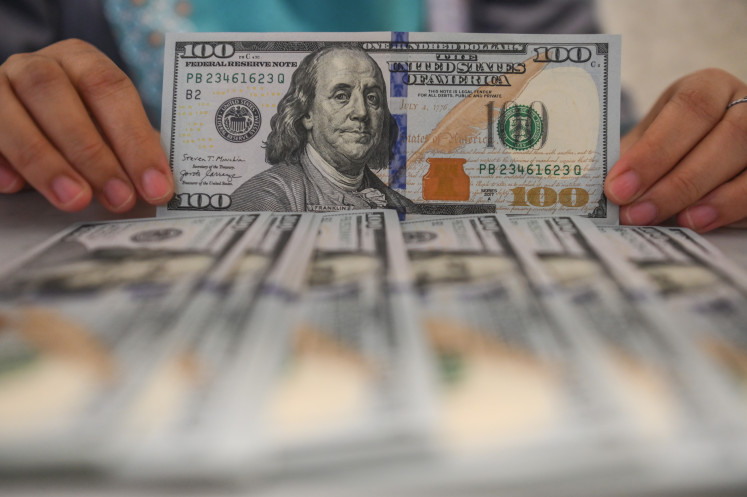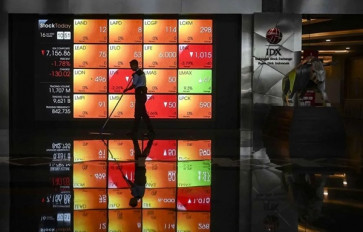Popular Reads
Top Results
Can't find what you're looking for?
View all search resultsPopular Reads
Top Results
Can't find what you're looking for?
View all search resultsUnleashing the bull: Predicting IHSG's next move
Market participants remain skeptical about the new administration's commitment to maintaining fiscal discipline, especially given forthcoming programs that could potentially strain finances.
Change text size
Gift Premium Articles
to Anyone
T
he Indonesian stock market (IHSG) is experiencing an unfavorable condition. After peaking at an all-time high of 7454.45 in mid-March, the index has declined by 9.75 percent to 6726.92 as of June 19, and has not yet shown a clear sign of a long-term reversal. This is aligned with a study from IFG Progress on the IHSG’s technical analysis, which states that the market was in an overbought condition by late-2023, signaling a possible downtrend afterwards.
Consequently, foreign investors are offloading blue-chip stocks such as BMRI, BBNI, BBCA, SMGR and GOTO. Major stocks like BMRI, which declined by 20.21 percent over the past three months, have seen significant drops. Similar patterns can be observed in BBCA (down 9.85 percent) and SMGR (down 38.07 percent).
Thus, it is crucial to determine whether these changes are seasonal or indicate more structural shifts. Here, we argue that the IHSG might not rebound shortly.
There are at least two reasons supporting this possible trajectory. First, the global macroeconomic situation remains uncertain. During the June 16 United States Federal Open Market Committee (FOMC) meeting, the US Federal Reserve maintained its target rate in the 5.25-5.50 percent range for the seventh consecutive time.
The accompanying Summary of Economic Projections (SEP), prepared by Fed board members, revealed that year-end core inflation in the US is projected to reach 2.8 percent, up from the previous 2.6 percent, thereby further deviating from their long-term inflation target of 2 percent.
Consequently, the board implied that a 25-basis-point rate cut would occur only once this year, down from a previously planned three times. This suggests that the period of a high Fed target range, which has affected emerging markets through capital outflows to advanced markets and subsequent currency depreciations, will persist longer than anticipated.
Since the Fed first raised its target rate in March 2022, major Asian emerging market stock indices and currencies have weakened. In Hong Kong, the HSI Index has declined by 25.3 percent. While the Hong Kong dollar has only depreciated by about 2 percent, there has been a significant increase in US dollar/Hong Kong dollar volatility over the last two years.



















